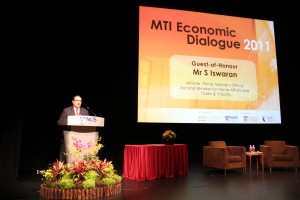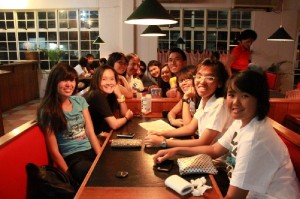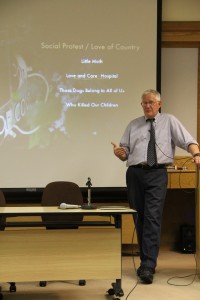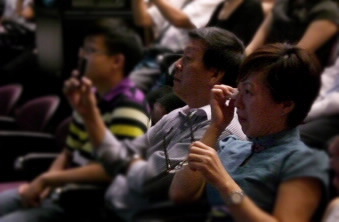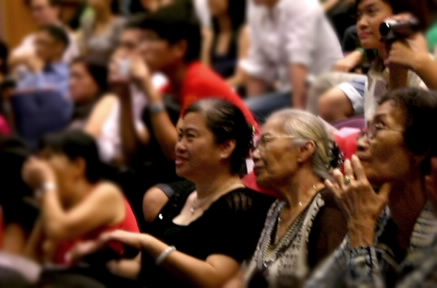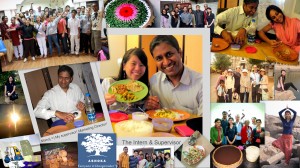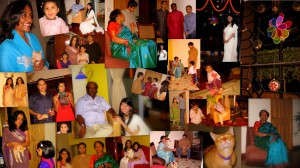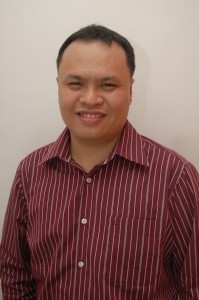
Joefe B. Santarita
PhD Candidate
South Asian Studies Programme, FASS, NUS
The rise of India in the 1990s has once more called the attention of the University of the Philippines (UP) to review its program by resuscitating its focus on South Asia particularly India.
To address this concern, the administration decided to develop faculty members specialising in one of the South Asian countries with India as a start. I was then encouraged to go to New Delhi on the notion that to be an expert on India, one must study in that country.
On that account, I conditioned myself to set off to India. Fortunately, a convincing chat with a prolific intellectual whom I met in an international seminar-workshop in Singapore and later became my supervisor changed the entire academic trajectory. In short, I applied in the National University of Singapore (NUS) for a doctoral course on South Asian Studies beginning 2007 and fortunately was accepted. At this time also, the letter of acceptance from a prestigious university in New Delhi arrived almost simultaneously with the NUS’ offer letter. This temporarily gave me a dilemma. Which one? Both are excellent universities and also offered generous financial support. In the end, I chose NUS, Faculty of Arts and Social Sciences (FASS) in particular. The following points helped in convincing myself as well as my superiors of my coming to Singapore instead of India.
Foremost, NUS at that time was ranked as one of the top 30 best universities in the world and top ten in Asia. The university also fared better in the social science cluster which continuously maintained until today. At the onset, I was already convinced that the FASS or NUS’ international standing as well as branding will value-add the degree that I will be bringing back to the Philippines after four years.
Secondly, NUS also provides considerable logistical supports ranging from wide collection of library materials, printed and online sources, availability of various expertise in different fields and from reputable international talents as well as provision of financial assistance to conduct research and represent FASS in international conferences outside Singapore among others.
Thirdly, I am also attracted to work directly with a supervisor. Being familiar with the Philippine educational system, I believed that having this set-up will lessen some distractions in finishing my degree the soonest. This system, however, was modified in the process. Nonetheless, I am fortunate to have a supervisor who worked with me in my most challenging and inspiring days in the university.
Fourthly, the South Asian Studies Programme (SASP), I assumed, is the only graduate degree granting institution on South Asia in Southeast Asia. I felt that this is the perfect place to pursue my research on the recent relations between India and the Philippines with closer proximity to major institutions that are also working on regional interactions between India and Southeast Asia.
Lastly, Singapore is geographically strategic to me. It is just few hours away from the Philippines and is comfortably nearer to India. It is also a multi-racial nation with a big number of residents having South Asian origins. Interacting with them will give me the opportunity to feel the pulse of the region.
Given all these reasons in mind, I pursued my post graduate studies in FASS. The experiences and opportunities I gained through the years while in NUS assured me that I made the right decision. The initial and continuous interactions with colleagues and mentors in SASP already sufficed my understanding as well as appreciation of the currents and undercurrents of South Asian region. With the abovementioned facilities provided by NUS, I can now challenge the notion that to be an Indian expert, one must stay in India. With confidence, I can say now that I do not need to stay in India for long to understand that country well. The revolution since the last decade of the 20th Century in the field of technology, information and transportation already addressed such gaps. Information can be gathered online and interviews can be conducted through phone and internet facilities. In case these activities are not enough, NUS has provided enough funds for a short research visit in India.
Currently, I am working on my dissertation that attempts to ascertain the current state of India’s Look East Policy, a regionalist initiative of India to actively interact with the countries in Southeast and East Asia since its inception after the Cold War. The bilateral relations between India and the Philippines in particular are being examined in this undertaking as a case study. Through this research, I hope to contribute in the scarce literature on the Philippine ties with South Asian countries as well as in the formulation of appropriate policies to enhance the dynamic interactions of key players of regionalism and regionalisation.
Moreover, living to its aim of being a global university, it is also worthy to mention that FASS and NUS in general provided good avenues to work with intellectuals of different backgrounds and expertise, interact to students from different countries and learn from mentors of high caliber.
The opportunity to serve as tutor in various Singapore-South Asian modules also balanced my academic well-being in the university. I was able to interact with young minds and share the joys of learning. In the process, I earned a sense of satisfaction as well as recognition as one of the recipients of the inaugural FASS’ Graduate Student Teaching Award for 2010. Other than the award, the most important thing I gained in this activity is the knowledge not only about South Asia but also Singapore in the process.
Finally, I fervently hope that the degree that I will be earning in the FASS will usher brighter future for me and my family. To start with, the diploma from NUS as mentioned earlier will improve my career path as a faculty and researcher. It will also boost my confidence to participate in various national and international as well as academic and bureaucratic undertakings.
Most importantly, the knowledge I learned and the experience I earned through the years in NUS will better equip me to share these to my future students in understanding better South Asia and in effect promote better interaction between Filipinos and South Asians. Hopefully, this will inspire at least some of them to pursue their post graduate studies about the region. In due time, I trust that they will also follow my choice.











